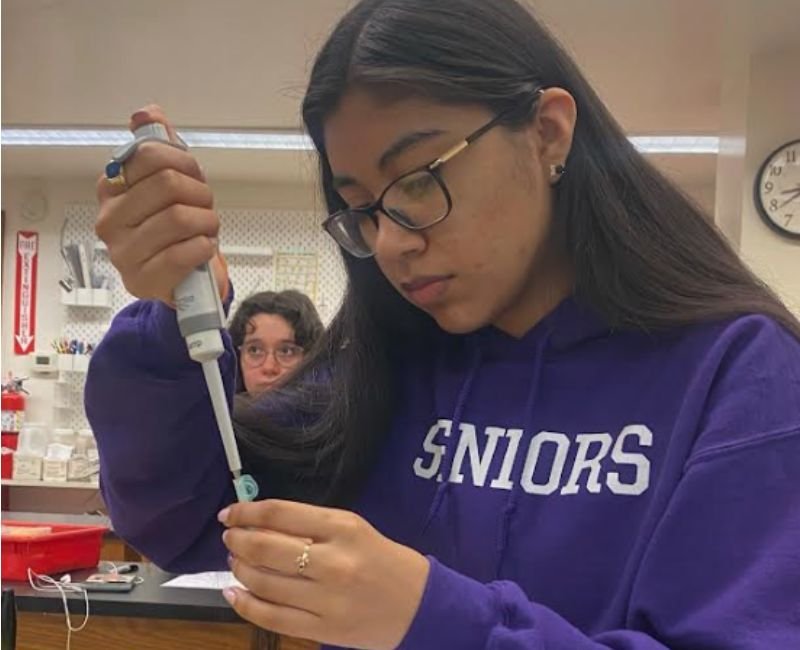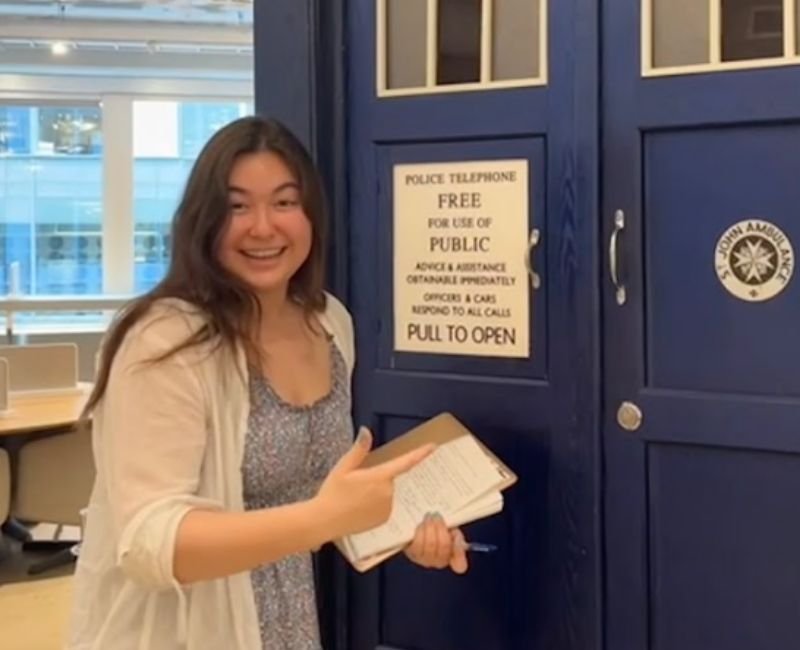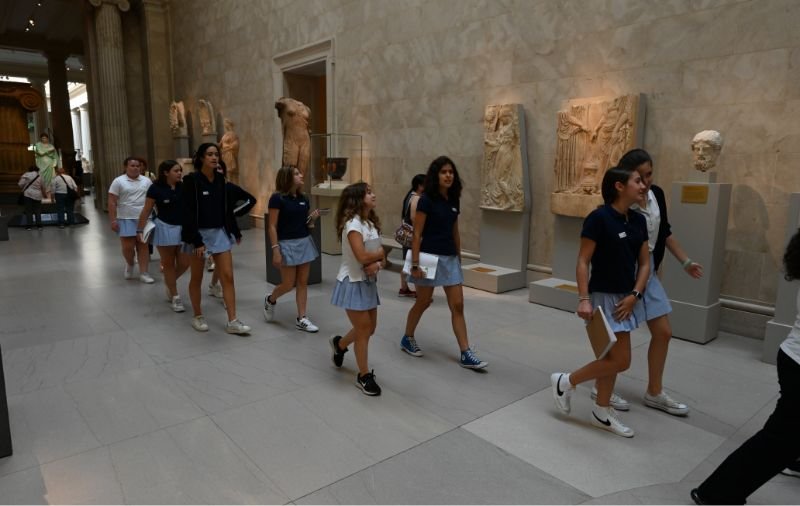Marymount’s Upper School program develops confident, capable, compassionate leaders who advocate with conviction for themselves and others. In addition to rigorous required courses, students pursue their interests through dynamic electives and challenge themselves in advanced college-level classes. Across the disciplines, students are encouraged to take intellectual risks, ask probing questions, develop critical thinking skills, and communicate clearly to support real-world problem-solving.
Rigorous Core Program
Marymount’s college-preparatory curriculum is rigorous, dynamic, and innovative. Emphasizing both depth and breadth of study, students are empowered with a broad foundation of knowledge across disciplines that ignites their curiosity, affirms risk-taking, and cultivates a passion for learning. Highlights of the core program include:
English
Students build foundational skills as readers, writers, and critical thinkers in Class IX Humanities, a cross-curricular exploration of the ancient world that capitalizes on our close relationship with The Met. After a study of American (X) and British (XI) literature, seniors elect to take courses such as “Doubt and Dysfunction: Contemporary American Drama,” and “Family, Memory, and the Power of the Past.”
History
From the ancient world to modern day, students begin to see human history as a continuous and interconnected story. In both Global History (X) and American History (XI), students engage in a critical examination of American ideals and America’s shifting place in a global world.
Math
From Algebra 1 to Multivariable Calculus, students develop critical-thinking and problem-solving skills through practical application and modeling. In higher level math courses, students understand how to describe the world around them using the language of mathematics.
Science
Students take required coursework in biology, chemistry, physics, and may elect to pursue advanced sciences, atmospheric science, engineering, or Independent Science Research (ISR). In the three-year ISR program, students investigate a topic of interest, design and perform experiments based on their research, and work with scientists in their chosen field. Several ISR students have had their research published in scientific journals.
World Language
In Spanish and French, students hone their ability to produce sophisticated, accurate speech in the target language, and develop a more profound understanding of other cultures. In Latin, students read and understand Latin at a high level, gaining a deep understanding of the impact of Roman literary culture on modern Western society. Students are able to study two languages if they choose.
Religious Studies
Upper School students take courses in world religions, social justice, scripture, and ethics. In addition to completing 20 hours of community service, Class X students participate in M-PACT (Marymount Philanthropy and Community Transformation) in which they research and advocate for local non-profit organizations.
Financial Literacy
Marymount is the only independent all-girls school in New York City to require all students to graduate with a certification in Bloomberg Market Concepts. Using Bloomberg terminals, students explore macroeconomics, currencies, fixed income, and equities, empowering them to be savvy about their financial futures.
Robust Elective Offerings
Students can augment the core curriculum with elective courses in Upper School, charting a unique course of study suited to their interests. No two student schedules are identical: while some students elect to double up on math or humanities courses, others choose to pursue engineering, design & innovation, visual and performing arts, or a second language. Marymount is also a member of One Schoolhouse, which connects students worldwide in a dynamic online learning community. Upper School students may be eligible to take courses not offered at Marymount through One Schoolhouse, including psychology, human geography, and environmental science.


Advanced Courses
Marymount offers college-level courses that fuel students’ intellectual curiosity, foster their love of learning, and develop critical skills. The necessary time commitment for advanced coursework is exceptional, and a student placed in an honors, intensive, or advanced level course has consistently demonstrated superior ability, motivation, and interest. Advanced courses include: Advanced Art History, Advanced Economics, Advanced Finance & Marketing, Advanced Molecular Biology, Advanced Drawing, Advanced French or Spanish Film & Literature, Advanced Latin Prose or Poetry Survey, and more.
Opportunities for Specialization
Marymount is a pioneer in design, innovation, and impact, offering students a certificate program in five distinct areas of study:
- Creative Programming
- Digital Fabrication
- Design Thinking and Entrepreneurship
- New Media
- Engineering and Physical Computing
Students who choose to navigate this path of study have access to a faculty advisor, professional mentors, and exciting internships, and will graduate with an impressive digital portfolio of their work.


Real World Experience
During the summer between junior and senior year, students are required to complete a three-week internship in an area of interest. They pursue their passions in business, finance, law, education, medicine, philanthropy, art, fashion, architecture, publishing, media, marketing, science, and technology. This extraordinary opportunity offers tangible work experience that may influence students’ future academic and career decisions.


